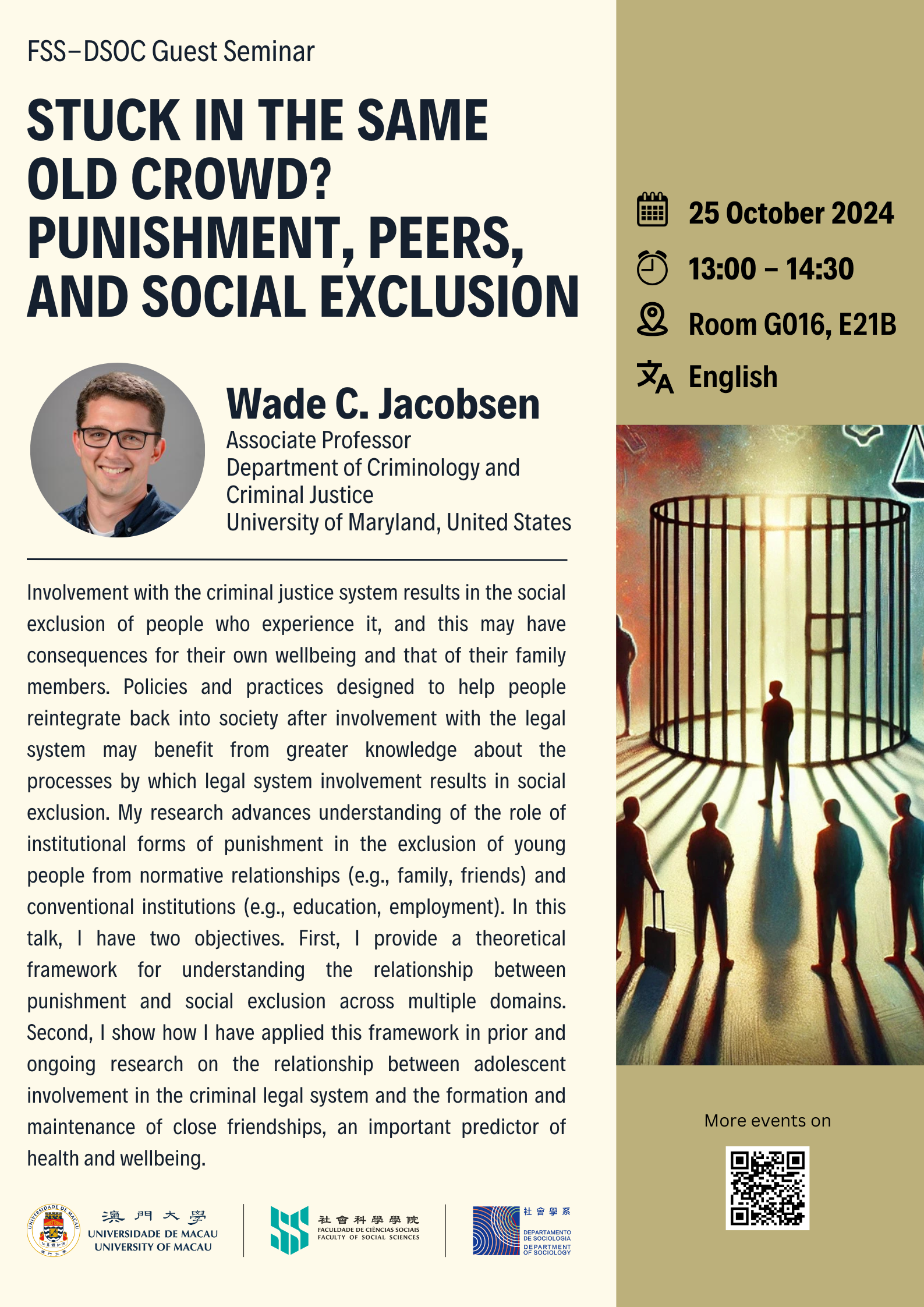
Date: October 25
Time: 1:00 pm – 2:30 pm
Speaker: Prof. Wade C. Jacobsen
Venue: E21B-G016
Organizer: Department of Sociology
Phone: 8822 4595
Involvement with the criminal justice system results in the social exclusion of people who experience it, and this may have consequences for their own wellbeing and that of their family members. Policies and practices designed to help people reintegrate back into society after involvement with the legal system may benefit from greater knowledge about the processes by which legal system involvement results in social exclusion. My research advances understanding of the role of institutional forms of punishment in the exclusion of young people from normative relationships (e.g., family, friends) and conventional institutions (e.g., education, employment). In this talk, I have two objectives. First, I provide a theoretical framework for understanding the relationship between punishment and social exclusion across multiple domains. Second, I show how I have applied this framework in prior and ongoing research on the relationship between adolescent involvement in the criminal legal system and the formation and maintenance of close friendships, an important predictor of health and wellbeing.
Wade Jacobsen is an associate professor in the Department of Criminology and Criminal Justice. He is also a faculty associate at the Maryland Population Research Center and a member of the research team for the Maryland Longitudinal Data System Center. His research examines how the development of risky behaviors in childhood, adolescence, and young adulthood is shaped by interactions with institutions (e.g., schools, criminal legal system) and social networks. Most of his current research assesses the impacts of a youth’s experience with school discipline or criminal justice involvement on changes in their peer networks and risky behaviors. Before his current appointment at UMD, he worked as a research specialist for the Center for Research on Child Wellbeing at Princeton University (Future of Families and Child Wellbeing Study) and then as a graduate research assistant for the PROSPER Peers Project at Penn State University.

